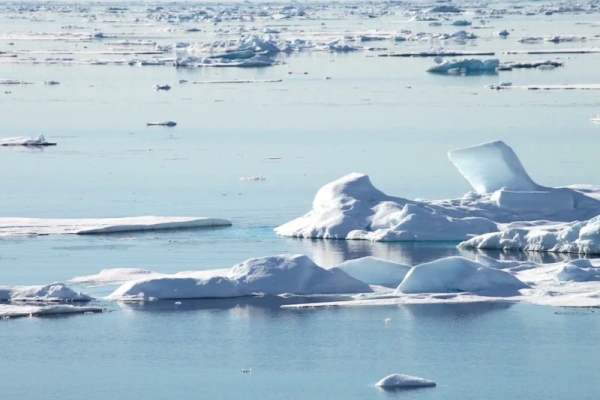More than 8,000 years ago, as the planet thawed following the end of the last ice age, Northern Europe abruptly cooled. New research reveals that Arctic ice melt weakened a critical ocean current, leaving Europe in the cold, a finding with important implications for future climate change.
For a roughly 200-year stretch, scientists believe, temperatures in Europe and the North Atlantic fell by as much as 9 degrees F (5 degrees C), spurring more rainfall in Europe and drought in parts of Africa. The cause of this cooling was a slowdown in the conveyor-belt-like current that carries warm, tropical water north across the surface of the Atlantic, and cold, Arctic water south across the seafloor.
This process is driven by the freezing of Arctic water. As seawater turns to ice, it expels its salt, leaving surrounding waters more saline. That dense, salty water then sinks to the seafloor, propelling the ocean conveyor belt. But 8,000 years ago, a sudden influx of fresh water disrupted this process. Scientists previously believed the fresh water came from a massive lake in northern Canada, which drained into the ocean after an ice dam broke.
Read more at Yale Environment 360
Image: Melting sea ice in the North Atlantic. (Credit: MARIA SCHEEL / AARHUS UNIVERSITY)


